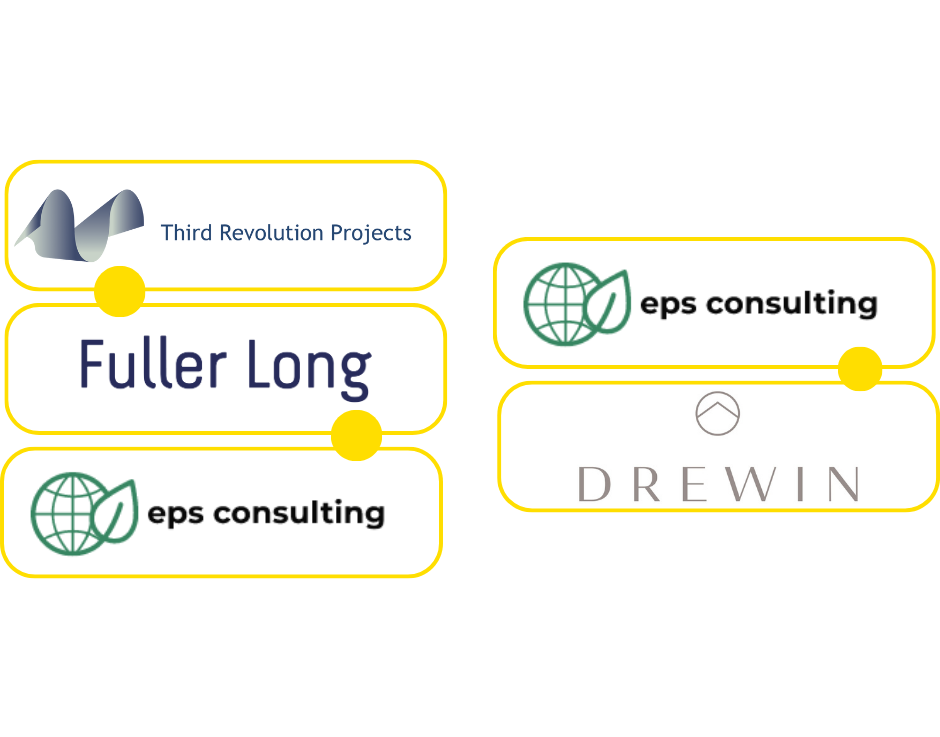There’s something within the very makeup of a co-working space that is there to encourage a social reaction. Everybody wants more from their working week, more flexibility, more engagement with the city, more buzz, and something more human. The notion of working in a co-working space which is industry dedicated is an attempt to curate a practising community, one that can use each other as a resource, a civilised attempt at a human phone book. The facilitation of collaborative practice is of course what we envisioned and hoped for when we set up Build Studios, so it is extremely pleasing and affirming to us when collaboration in the workspace does take place. Two projects involving four of our teams have recently progressed thanks to relationships developed in the workspace. These include a proposal for Battery Energy Storage System from Third Revolution Projects, Fuller Long and EPS Consulting; in addition to a project led by Drewin in collaboration with EPS Consulting.
The scheme for a Battery Energy Storage System is being led by Third Revolution Projects. The submission was supported by Fuller Long, a planning, heritage and archaeology consultancy who provided an Archeological Desk-Based Assessment, alongside EPS Consulting, a contaminated land and geotechnical consultancy, who submitted a Tier 1 Contaminated Land Preliminary Risk Assessment.
Andrew Dowell, Associate Planner at Third Revolution Projects gave a summary of the project:
We gained planning permission this week for the development of a Battery Energy Storage System (BESS) with ancillary infrastructure and biodiversity enhancements at the former Northern Gas Networks site at Clough Road in Hull.
The proposal is for sufficient capacity to store up to 130MW of energy. BESS developments are a key component of the low-carbon energy infrastructure required to achieve net zero carbon emissions in order to tackle climate change. They provide a means to store and generate energy – charging from the grid in periods of generation surplus and releasing electricity back instantly when energy demand is high. Hence, they are an integral part of renewable energy infrastructure such as wind and solar energy sources, which by their nature fluctuate energy generation, according to weather, time of day and seasonal variation.
The proposal will support the Government’s and Hull City Council’s transition to a low carbon economy.
Sophie Bell, Archaeology Consultant at Fuller Long gave a summary of the findings from the Archaeological Desk Based Report:
We provided an Archaeological Desk-Based Assessment. An Archaeological Desk-Based Assessment is probably best explained as an Archaeological Risk Assessment. The first stage is to conduct a review of known archaeological evidence from the site and its surrounds (known as a study area). Having assessed the potential for various finds on the site we only found a high level of potential for features and finds dating to the Post-Medieval and Modern periods. That, combined with the high level of disruption to the site, which would have likely removed or heavily contaminated any finds led us to recommend that the Archaeological Desk Based Assessment would be sufficient and we concluded that no further archaeological work would be required.
Another ongoing project from the workspace involves EPS Consulting, and property developers Drewin.
Tim Conibear, Director of EPS Consulting gave us a summary of the Alma Yard project:
Drewin has developed an old motor vehicle repair/storage facility just off Crystal Palace triangle involving the construction of six new residential dwellings with commercial floorspace. The local authority issued a planning condition requiring contaminated land investigation due to the potential risks associated with the former use. Following contaminated land investigations and subsequent installation of remedial measures, EPS are preparing the verification report to enable the discharge of the planning condition.
